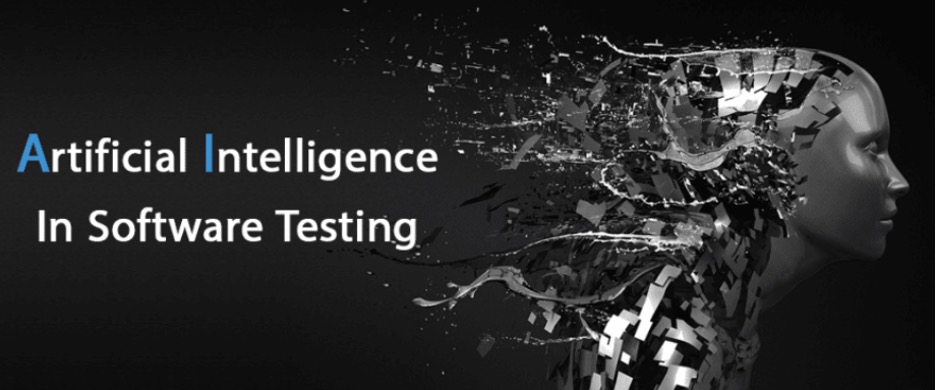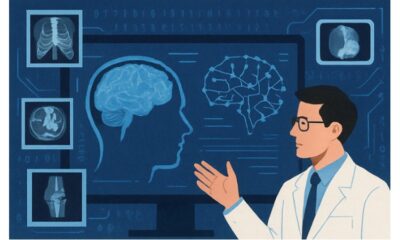Tech
AI in Software Automation Process

Author: Nibras Muhsin, MBA | Software and QA Management Specialist
What is Artificial Intelligence?
Artificial Intelligence (AI) is when a machine imitates the cognitive functions that humans associate with other human minds, such as learning and problem solving, reasoning, knowledge representation, social intelligence, and general intelligence in terms of computer systems. It is an emerging field and vital applications include machine learning, expert systems, natural language processing, speech recognition, machine vision and neural semantic systems. Approaches include statistical methods, computational intelligence, soft computing, and orthodox symbolic AI.
One word that best describes use of artificial intelligence is Automation or digitalization. Automating process involves employing AI platforms that can support the digitalization process and deliver the same or better results that human brain would have achieved. Furthermore, digitalization cuts the cost for specific tasks, reduces or eliminates chances of error and enhances the overall performance of a software.
Use of AI in Software Development
AI platforms in software development or testing are software architectures that allows the compiler to run and test for bugs in the software. Many tools are used in AI, including versions of search and mathematical optimization, logic, methods based on probability and economics.
Google AI Platform, TensorFlow, Microsoft Azure, Rainbird, Infosys Nia, Wipro HOLMES,
Dialogflow, Premonition, Ayasdi, MindMeld, Meya, KAI, Vital A.I, Wit, Receptiviti, Watson Studio, Lumiata, Infrrd are some of the top Artificial Intelligence Platforms. We will discuss below in details, some of the most useful platforms. Moreover, Test.ai, appvance, testsigma, selenium, Eggplant AI, Applitools, are some of best testing platforms.
1. Google AI Platform
AI Platform makes it easy for machine learning developers, data scientists, and data engineers to take their ML projects from ideation to production and deployment, quickly and cost effectively. From data engineering to “no lock-in” flexibility, AI Platform’s integrated tool chain helps you build and run your own machine learning applications. AI Platform supports Kubeflow, Google’s open-source platform, which lets you build portable ML pipelines that you can run on-premises or on Google Cloud without significant code changes. And you’ll have access to cutting-edge Google AI technology like TensorFlow, TPUs, and TFX tools as you deploy your AI applications to production. Prediction API can integrate with Google App Engine, and the RESTful API is available through libraries for many popular languages, such as Python, JavaScript and .NET.
2. TensorFlow
TensorFlow is an open-source software library for numerical computation using data flow graphs. Nodes in the graph represent mathematical operations, while the graph edges represent the multidimensional data arrays (tensors) communicated between them. The flexible architecture allows users to deploy computation to one or more CPUs or GPUs in a desktop, server, or mobile device with a single API. TensorFlow was originally developed by researchers and engineers working on the Google Brain Team within Google’s Machine Intelligence research organization for the purposes of conducting machine learning and deep neural networks research.
3. Microsoft azure
Microsoft Azure Machine Learning offers cloud based advanced analytics designed to simplify machine learning for business. Business users can model their way, with the best-in-class algorithms from Xbox, Bing, R or Python packages, or by dropping in custom R or Python code. The finished model can then be deployed in minutes as a web service, which can connect to any data, anywhere. It can also be published out to the community in the product Gallery or into the Machine Learning Marketplace. In Machine Learning Marketplace the application programming interfaces (APIs) and finished services are available.
4. Rainbird
Rainbird is an award-winning Artificial Intelligence platform that makes the business operations smarter. Rainbird is at the forefront of knowledge work automation technology. It is a powerful ecosystem for re-engineering knowledge work enabling companies to automate and augment the work their staff’s performance, enables you to take existing, human, business knowledge and combine it with your data to automate knowledge work and deliver consultative systems that can transform the way your staff and customers interact with each other.
5. Infosys Nia
Infosys Nia is a knowledge-based AI platform. It brings machine learning together with the deep knowledge of an organization to drive automation and innovation. This enables businesses to continuously reinvent their system landscapes. Nia, with the Infosys AiKiDo service offerings, dramatically lowers the cost of maintenance for both physical and digital assets. It captures the knowledge and know-how of people across fragmented and complex systems, and simplifies the continuous renovation of core business processes. Nia also enables businesses to bring new, delightful user experiences leveraging state-of-the-art technology.
6. Eggplant AI
Eggplant AI, built by TestPlant, uses artificial intelligence (AI) and machine learning to autogenerate test cases and optimize test execution to find defects and get broader coverage of the user experience. The instrument uses AI to predict technical issues in the tested software, navigates thousands of features in a short period, offers smart data-driven solutions. The tool can be connected to any automation engine – it also provides graphic reports on all activities.
7. Applitools
Applitools is an AI-powered visual testing & monitoring platform. Applitools Visual AI is easy to setup and integrates with all modern test frameworks. An AI-based visual testing automation tool. Equipped with smart vision, it can predict users’ actions on the app and outline the software’s structure. The tool compares users’ expectations to an existing interface, detects inconsistencies, and adapts to different screen sizes, and browsers.
8. Test.ai
The software automatically structures the functionality of the software and analyzes different screens. The ultimate purpose lies in developing the most efficient cases to assess each of the scenarios. Test. ai tracks changes of any element and determines if it was positive or negative. If some features require manual testing, AI will evaluate the situation and notify the testing team immediately. AI-First powered test automation tools help QA testers, developers, and other teams meet their goals to release apps faster and with higher quality. Quality assurance can now run at DevOps speed. Scale to testing and supporting thousands of apps continuously across dozens of platforms.
9. Appvance
Appvance is considered the leader in AI-driven software testing. Appvance IQ, its AI-driven, continuous testing system, transforms testing team results. Being an AI-based visual testing automation tool equipped with smart vision, it can predict users’ actions on the app and outline the software’s structure. The tool compares users’ expectations to an existing interface, detects inconsistencies, and adapts to different screen sizes, and browsers.
10. Testsigma
If you would like to minimize human involvement in your automated testing, you can try Testsigma – a language-processing tool that evaluates the quality of test cases, so the team doesn’t have to. The software will automatically identify relevant test cases, detect overload risks, and prevent bottlenecks.
11. Selenium
Selenium is an open-source test automation tool which automates the test cases to test a website’s behavior on a browser. Primarily it is for automating web applications for testing purposes, but is certainly not limited to just that. Monotonous web-based administration tasks can also be automated as well.
In the nutshell…
Artificial Intelligence and Machine Learning are products of both science and myth. The idea that machines could think and perform tasks just as humans do is thousands of years old. The cognitive truths expressed in AI and Machine Learning systems are not new either. AI combined with Machine learning is used to provide users with the required functionality and make the business process a much simpler one. AI software is used to build and develop an intelligent application from scratch with the help of Machine learning and deep learning capabilities.
Let’s be bold and take one step ahead toward integrating AI in Software Development and Testing.
-

 Sports4 weeks ago
Sports4 weeks agoFIFA Club World Cup 2025: Complete List of Qualified Teams and Groups
-

 Sports3 weeks ago
Sports3 weeks agoAl Ahly vs Inter Miami, 2025 FIFA Club World Cup – Preview, Prediction, Predicted Lineups and How to Watch
-
Health2 weeks ago
Back to Roots: Ayurveda Offers Natural Cure for Common Hair Woes
-

 Tech2 weeks ago
Tech2 weeks agoFrom Soil to Silicon: The Rise of Agriculture AI and Drone Innovations in 2025
-

 Sports4 weeks ago
Sports4 weeks agoFIVB Men’s Volleyball Nations League 2025: Full Schedule, Fixtures, Format, Teams, Pools and How to Watch
-

 Startup3 weeks ago
Startup3 weeks agoHow Instagram Is Driving Global Social Media Marketing Trends
-

 Sports3 weeks ago
Sports3 weeks agoWorld Judo Championships 2025: Full Schedule, Date, Time, Key Athletes and How to Watch
-

 Sports2 weeks ago
Sports2 weeks agoFIBA 3×3 World Cup 2025: Full Schedule, Preview, and How to Watch





















